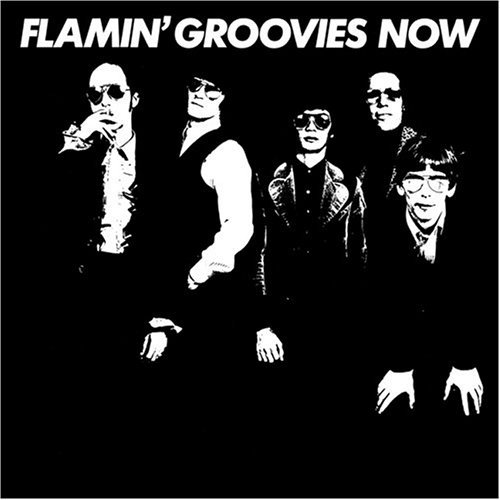You Can't Hide Your Love Forever (1982) ***1/2
Rock'n'Pop has always fetishized adolescence, yet the lads in the Orange Juice find a novel angle of approach: few albums have captured the gangly, awkward essence of growing up too fast so well, as your sprouting body seems to clumsily trip over itself, while your inexperience with social interactions and conventions causes you to trip over yourself even more embarrassingly. The key adjective here is 'awkward'. These are supposed to be catchy jangle-pop tunes, but the band can't (or won't) perform them in a straightforward manner. The arrangements seem jarringly cluttered for such clean and spare music. Sometimes the clattering drums or bobbling bass seem mixed too loudly, distractingly so, with the tinny hooks buried behind the fussy busyness. More often is the case, the band have mis-mastered the art of the awkward transition, as once they settle into an acceptable groove for a few seconds they immediately and jarringly abandon it - going from smoothly crooned pop in the verses to hyperkinetically charged white-boy funk for the chorus, for one example, or trying to shoehorn a bouncy waltz and a militaristic four-four march into the same tune (at the same time). On first listen, I couldn't take it all in; this was supposed to be pop music, not Captain Beefheart - you're not supposed to have to work at it. Yet the band had at least some minor historical importance, being a key member of the wave of neo-pop post-punk bands that laid the foundations for the sound of Young Scotland on Postcard Records in the early '80s (the other two being Josef K and Aztec Camera - see those reviews). So I resigned myself to a second listen, and it started to make a little more sense as I started to notice the details. And finally after many repeat listenings, I got it. What initially seemed like deliberately obtuse arrangement gaffes transmuted into quirks essential to the band's charm. Frankly, I was wrong: if this had been a catchy pop album that hooked me immediately, that's all it would ever amount to. It is a catchy pop album, but one that's unusually eccentric and therefore more compelling.
To put it "In a Nutshell," as Edwyn Collins croons (yes, that '90s one-hit wonder), Orange Juice's jittery post-rockabilly sound provides the missing link between the Talking Heads and the Smiths. (Not to mention Vampire Weekend - yes, that's right, please don't mention them.) James Kirk (no, not that James T. Kirk) plucks and strums away on the high end notes of the guitar scale, for a clean, spare hook foundation that self-consciously avoids macho rock cliches. In fact, this album is downright fey, with the band wearing their collegiate nerdiness and wimpiness on the sleeves of their Cardigan sweaters. O, Edwyn - even more initially offputting for the unprepared listener than the cluttery arrangements is his voice. Collins' mannered vocals come across as a Bryan Ferry imitation on quaaludes, and a callow youngster's imitation at that - he's many years away from the deep soul crooner he would become on "A Girl Like You". He takes some getting used to, is what I'm saying, and I still haven't entirely made my peace with the vocals on this album. Kirk (the other main songwriter and creative force) takes a few lead vocal spotlights, and his more conventional but bland and characterless vocal style highlights the advantage of having a highly distinctive vocalist (love him or loathe him) in your band. In addition, Collins is the sort of proto-Morrissey who deliberately slips in a word like "discourteously" into a verse no matter how awkward it scans. (There's that adjective again.)
While the obvious influences of the Velvet Underground, Television, and the Talking Heads aren't surprising in an early '80s post-punk band, there's another crucial influence that sets Orange Juice apart from their Scottish peers: classic soul. This evidences itself not only in the Al Green cover ("L.O.V.E. Love"), and not just the slippings into light funk at times (on others they do a credible Velvets snapping-bicycle-chains jangle), but mostly in the sheer upbeat joyousness of this music. "Upwards and Onwards," isn't sung with a trace of smirking irony, and it's not hard to see which part of the "Falling and Laughing," ultimately wins out. It's also a bright and clean-cut sounding record - an innocent, romanticized '50s feel musically derived from '60s sources updated for the '80s. In other words, the Smiths. But a happy Smiths! A 3.75 star rating, but I'm not rounding up, after realizing that while highly pleasant and enjoyable as a whole, there just aren't any true knockout tracks present. It's special but not that special; just, in the end sum of things, another catchy jangle-pop album - albeit one that takes some time getting used to.
One more detail: in "Untitled Melody," Collins talks about buying some sun-specs from a local hipsters' store. See, kids? For those whose memories extend beyond last week, they didn't spring out of nowhere in the past decade. Hipsters were alive and rampant in 1982. And in 1952, if you've ever heard of these fellas who called themselves the Beats....





















